Iran Culture House organized a Symposium on “Colonial Nature of the West and Eastern Civilization”Iran Culture House organized a Symposium on “Colonial Nature of the West and Eastern Civilization”
Iran Culture House organized a Symposium on “Colonial Nature of the West and Eastern Civilization”
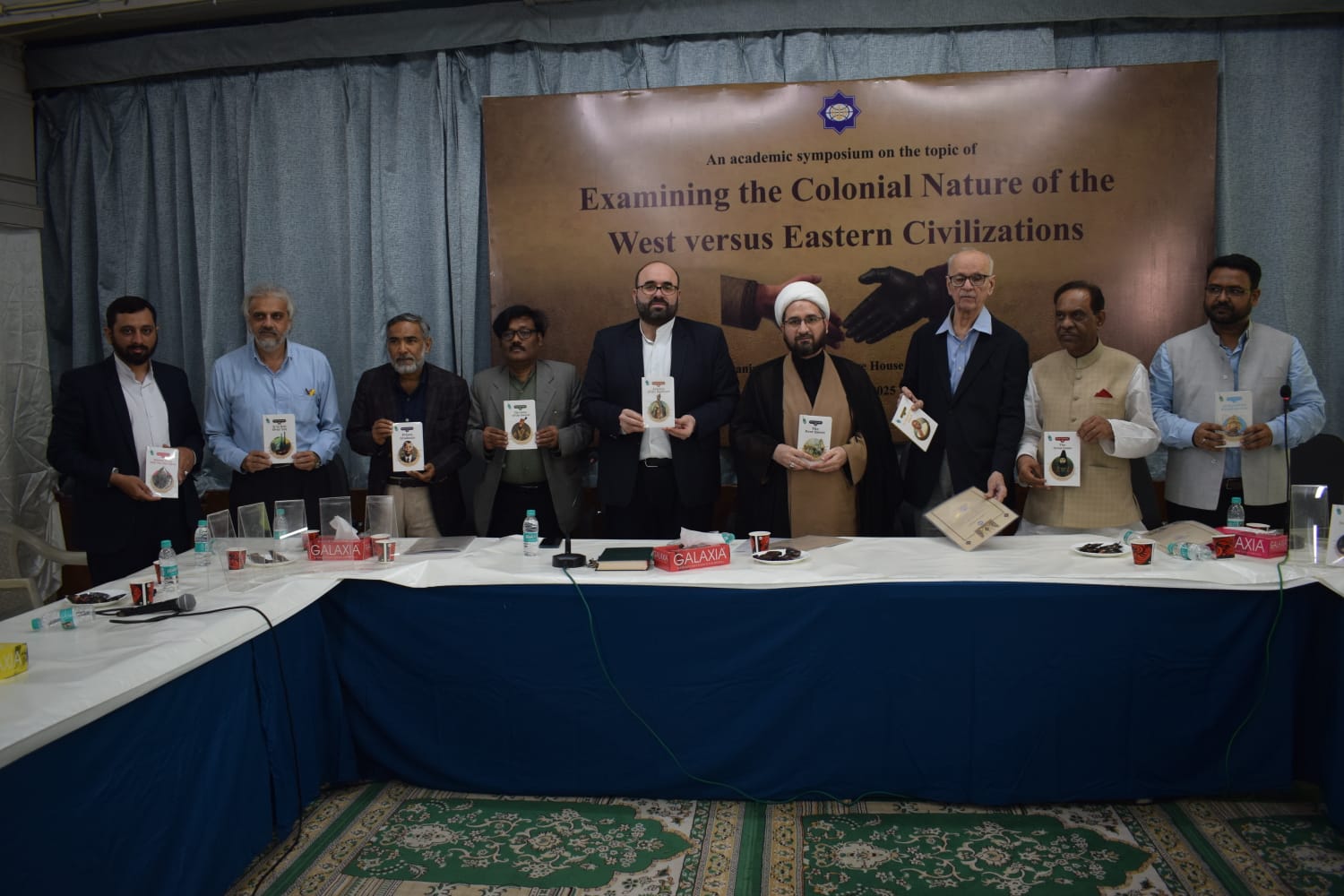
The Culture House of the Embassy of the Islamic Republic of Iran organized an academic symposium titled “Examining the Colonial Nature of the West versus Eastern Civilization.” The event brought together scholars, journalists, and educationists who explored the political, moral, and educational dimensions of colonialism and the ongoing quest for cultural and intellectual decolonization.
Dr. Faridoddin FaridAsr, the Cultural Counselor of I. R. Iran in New Delhi’s topic of presentation was “Anti-colonial metaphors in the speeches of anti - imperialistic leaders in Iran and India.” He quoted the common anti imperialistic metaphors of Mahatma Gandhi, Jawaharlal Nahru, Imam Khomaini & Ayatullah Khamenei. He added that the big question is : what factors caused the great leaders of Iran and India to be so similar to each other and speak similarly? Three factors come to mind for this issue. The common civilization roots of Iran and India are the dynamism of Eastern thought and civilization. This has led to the emergence of a common perspective while from the perspective of an Eastern man, a different perspective from the Western one. The common pain of Iran and India, both wounded by the same dagger against the West and suffering the same pain. The story of Arab colonialism has hurt both lands in different ways but with common results. Gandhi Ji’s common sources of inspiration state that he was inspired by Imam Hussein (peace be upon him) in the form of his struggles. Also, according to the Iranian leaders, the anti-colonial struggles of India have inspired the Islamic Revolution of Iran.
Dr. Mohammad Hossein ZiyaeeNia, Deputy of the Representative of Iran’s Supreme Leader in India, delivered a lecture on “The Anti-colonial Perspective of Imam Khamenei.” He offered a critique of Western civilization through Ayatollah Khamenei’s thought, explaining that while the West has achieved remarkable material progress, it has distanced humanity from divine guidance, resulting in moral decline, exploitation, and inequality. He said the core conflict between East and West lies not in technology, but in their understanding of human nature. “In the Western worldview,” he stated, “man is seen as a rational, self-serving being; in Islam, he is a divine creation entrusted with a moral mission.”
Quoting Ayatollah Khamenei, Dr. ZiyaeeNia said colonialism not only looted nations materially but also stripped them of dignity and identity. He connected modern inequality to capitalist systems, media control, and global institutions that sustain Neo-colonial power. He urged building spiritually grounded models of development rooted in justice and divine ethics rather than materialism.
Senior journalist Qamar Agha spoke on “The Essence and Evolution of Western Colonialism.” He traced colonialism’s origins to 14th-century European maritime expansion, which enabled global exploitation through technological and naval superiority. He noted that Britain’s industrialization and “divide and rule” policy cemented its control over India, while Europe’s adaptation and innovation guaranteed dominance.
Even after independence, he said, Neo-colonial structures continued through sanctions, regime-change operations, and economic control. “The world order still reflects colonial hierarchies,” Agha said, citing Western interventions in West Asia, Central Asia, and Latin America. Referring to the Gaza conflict, he described it as a continuation of the same colonial mindset but noted that rising powers such as China, India, Iran, and Russia are challenging Western supremacy through alliances like BRICS.
Syed Tanveer Ahmad, Secretary of the Department of Education, Jamaat-e-Islami Hind, spoke on “Experiences of Decolonizing Culture and Education in India.” He said British colonialism reshaped India’s education system to produce bureaucrats rather than moral citizens. Ahmad emphasized redefining education to nurture ethical, spiritually aware individuals instead of focusing only on economic productivity. Drawing from Maulana Abul Kalam Azad and the Radhakrishnan Commission, he called for integrating moral, academic, and creative learning under the National Education Policy 2020.
Ahmad detailed a three-layered curriculum encompassing values, academics, and co-curricular learning and urged rewriting textbooks to remove colonial biases. He said decolonizing education is vital for intellectual freedom and restoring India’s civilizational confidence.
Other speakers included Dr. Syed Ali Kazim, Prof. Akhlaq Ahan, Dr. Taslim Rahmani, and Ms. Disha Rajendra Mishra. The symposium concluded with agreement that Eastern societies must reclaim moral and intellectual sovereignty and redefine progress through justice, spirituality, and intercultural understanding.
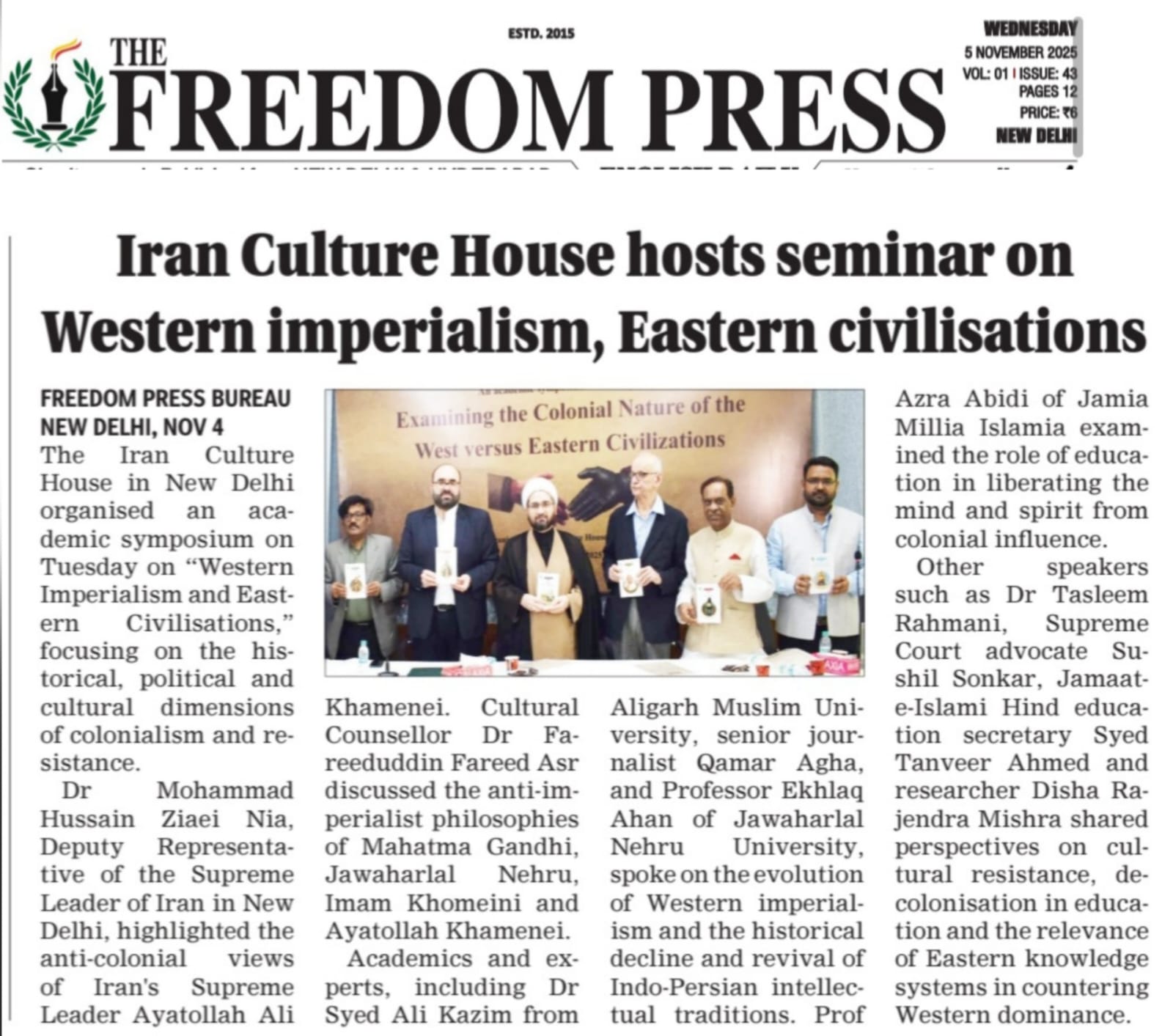
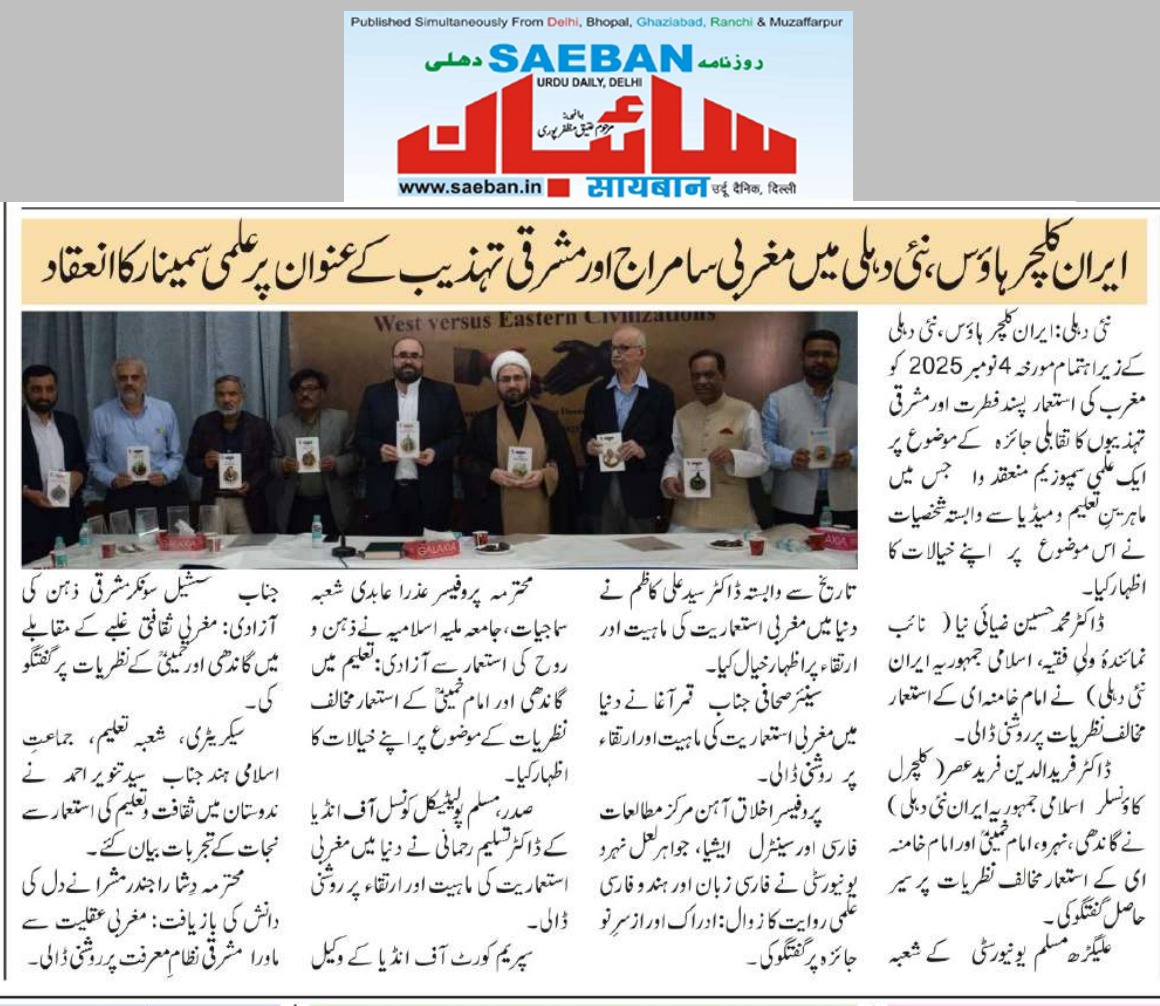
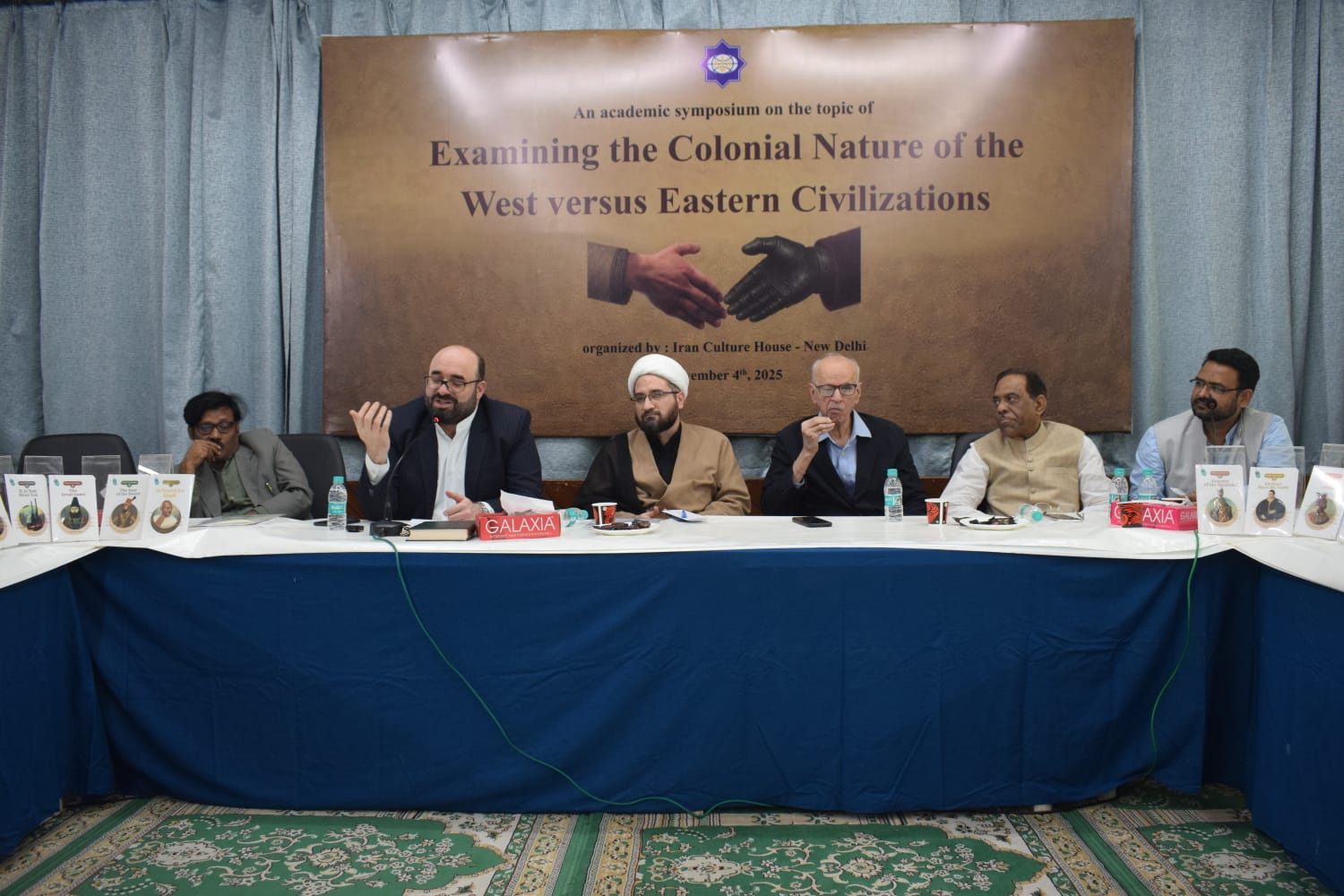
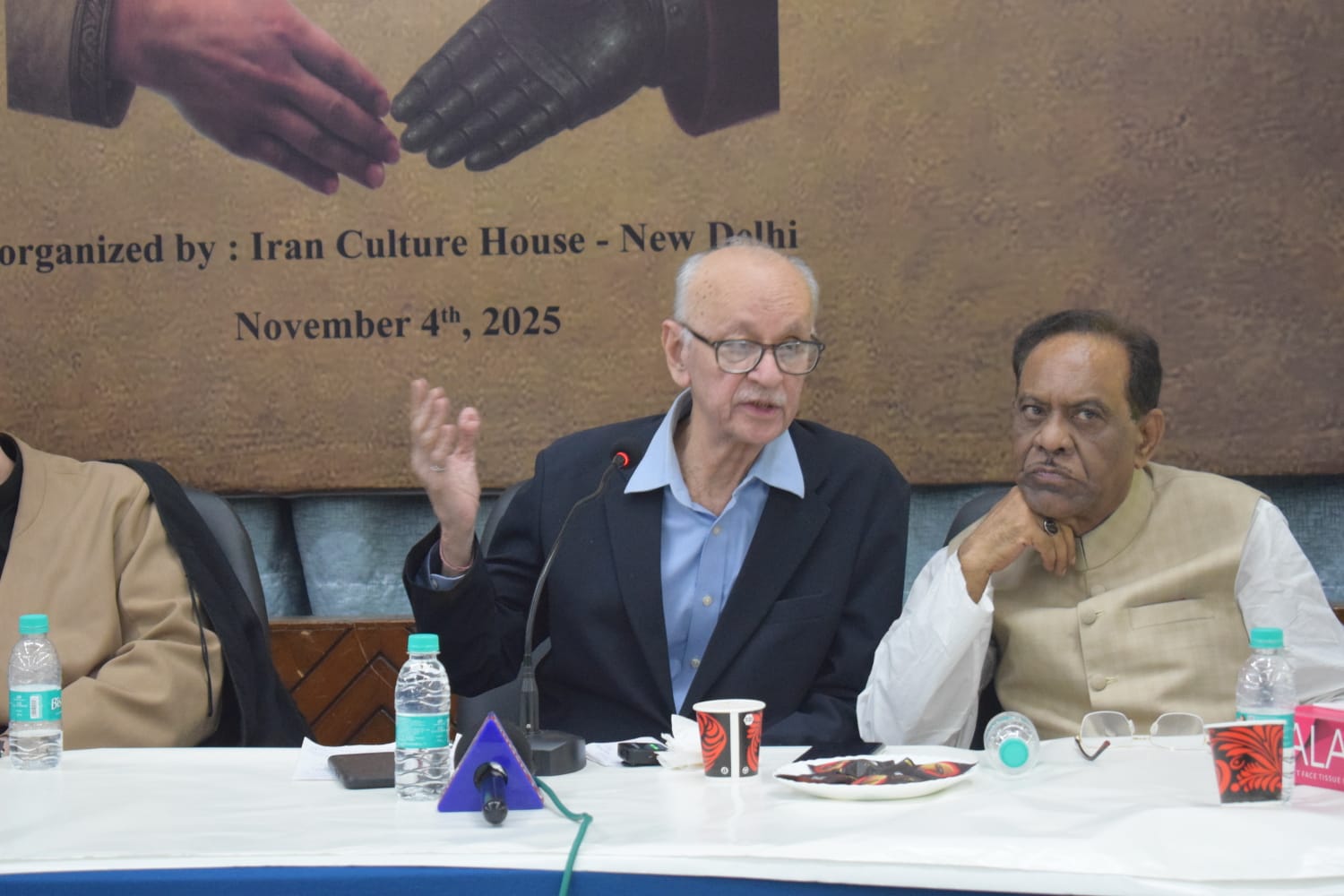

Write your comment.